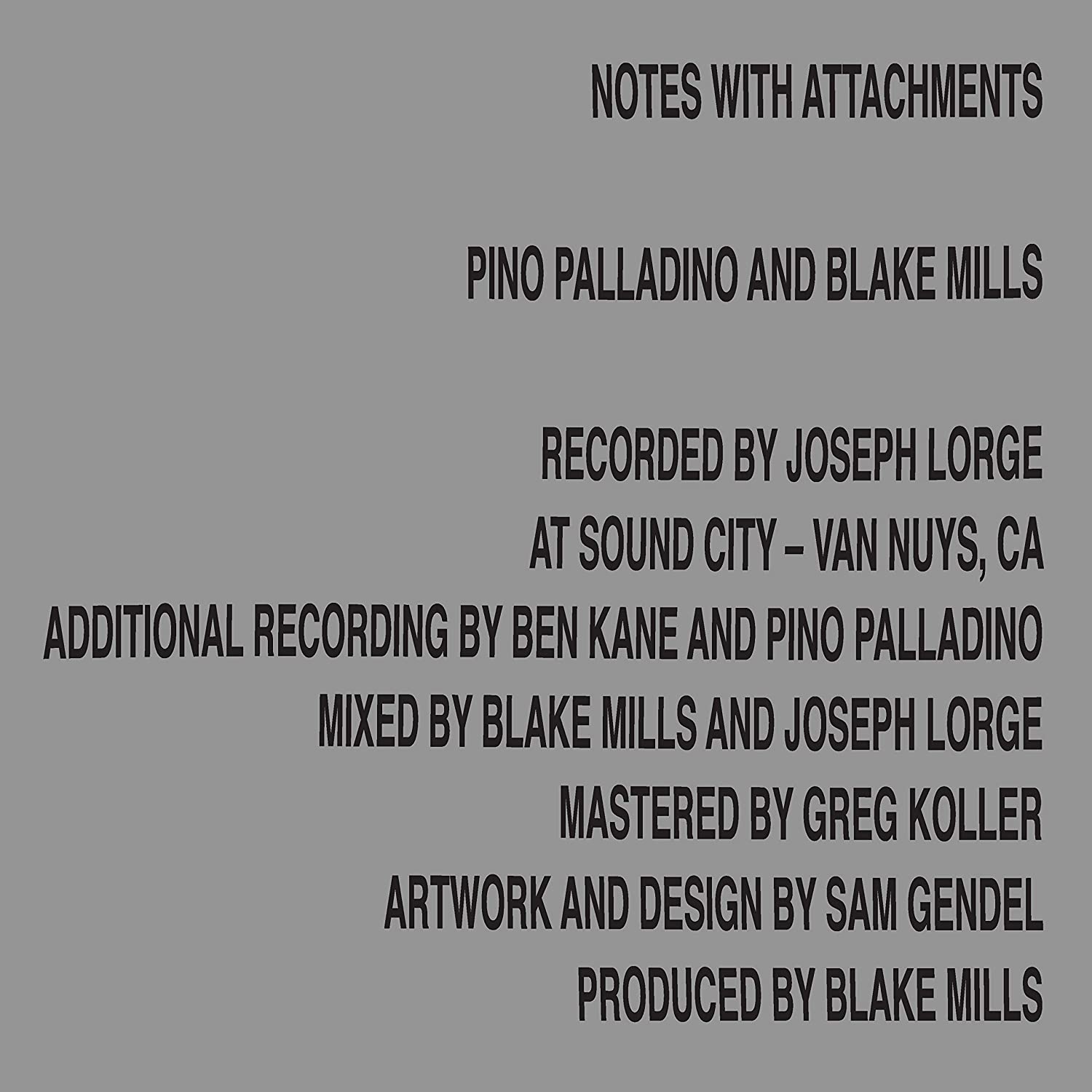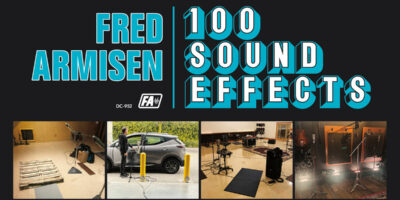It’s another music roundup, diving into a pair of collaborative releases, Pino Palladino and Blake Mills’s NOTES WITH ATTACHMENTS and Young Dolph and Key Glock’s DUM AND DUMMER 2!

Pino Palladino and Blake Mills – NOTES WITH ATTACHMENTS
Genre: Experimental, jazz
Favorite Tracks: “Ekuté,” “Notes with Attachments,” “Djurkel,” “Chris Dave”
Legendary session bassist Pino Palladino has been around the block more than a few times. This is the guy who brought Stravinsky and Marvin Gaye together to the top of the pops on Paul Young’s cover of Gaye’s “Wherever I Lay My Hat (That’s My Home),” the guy who Pete Townshend and Roger Daltrey called in to replace John Entwistle in The Who, the guy holding down the low end as part of The Vanguard on D’Angelo’s BLACK MESSIAH—he’s done a ton of great work with a ton of great artists. NOTES WITH ATTACHMENTS, a collaborative effort with producer and multi-instrumentalist Blake Mills, is the first album in Palladino’s storied career to bear his own name, and while one might think that this would be some sort of wildly ambitious creative explosion he’s been holding in for decades, the record is, in fact, a lean and relatively low-key affair.
Clocking in at a brisk 31 minutes over eight tracks, the sound of NOTES WITH ATTACHMENTS is largely defined by a studio-bound intimacy, the sort of jazz record that is as much production as it is musicianship, although here the producer is playing both roles. Assembled in piecemeal over the past two-and-a-half years (and drawing from melodic ideas even older), this doesn’t really sound like a set of live sessions, which is by no means a bad thing. An impossible number of instruments snake in and out of the mix, rarely dominating but always playing a part. The arrangements, like the instrumentation, are always eclectic, changing gears on a dime but rarely straying from the general easygoing vibe. When the music does kick into high gear, like in the bitcrushed-sounding groove of “Ekuté” or the horn blasts halfway through “Djurkel,” it always tends to return to a comfortable sounding home base, even if it takes some twists and turns to get there.
But oh, what twists and turns! “Ekuté,” in particular, goes through a staggering number of shifts, starting out as a slower, Afrobeat-inspired number, breaking out into a monolithic, fuzzed-out stomp, taking a brief detour into something that sounds partway between Steve Reich and Squarepusher’s multi-tracked polymetric bass playing on his track “My Sound” and bringing it all back home into a boisterous cadence fit for a spy movie theme song. The record is full of smaller surprises, too, like the wonky synths and drums that open “Chris Dave” (named after the album’s drummer, another member of D’Angelo’s Vanguard), or the title track, which sounds about as close as I can imagine a track on a jazz album coming to U2’s Eno-fied improv piece “4th of July.” There are a lot of interesting things to be found on the record, but it all feels maybe a bit more playful and exploratory than truly planned out. Now, that’s a delightful thing for a record to be, but I couldn’t help but be reminded of Don Ellis’ big band experimentation in the late ‘60s and early ‘70’s, which gave a huge and unconventional lineup of musicians some full-throated and carefully written material to work with without losing any of that adventurous spirit. NOTES WITH ATTACHMENTS certainly doesn’t play it safe, but I hope if we see more composition from Palladino and Mills in the future they either lean a bit further into the studio jazz element and create truly impossible music that couldn’t possibly exist on stage (touched on in “Man from Molise,” reconstructed from an old demo played back at half-speed) or write for a band rather than piecing tunes together over time. This is certainly a happy medium, but I’m hoping it’s just a warm-up. [Evan Pincus]

Young Dolph and Key Glock – DUM AND DUMMER 2
Genre: Memphis Trap
Favorite Tracks: “Dummest & the Dummest”, “In GLOCK we trust”, “Hashtag”, “Something Else”
I’ll be the first to admit I have a soft spot for Memphis rappers Young Dolph and Key Glock, who espouse several of the rap traits I most appreciate. They’re undeniably hard, verifiably authentic, and seriously workmanlike, delivering the second installment of their DUM AND DUMMER series in as many years. I’d liken them to your favorite fast food: reliable and satisfying, if lacking in substance. There’s a complement of qualities fans are conditioned to expect from the prolific duo; trunk-rattling, bass-heavy bangers from in-house producer Bandplay, classic money, hoes, and clothes trap talk, and the effortless, fire-and-ice chemistry of Dolph and Glock. DUM AND DUMMER 2 is no different, which is a positive here. Certainly stagnation is a concern for many artists; I would be concerned if Kendrick or Vince Staples turned out repeat efforts without evolution, because that’s what I expect from artists of their caliber. That Dolph and Glock don’t occupy this same echelon is far from a condemnation; in fact, I appreciate the reliable nature of their output. I know with every release, I’ll get a couple diamond-hard, stank-face-inducing tracks I can add to playlists tailored to such a mood, and DUM AND DUMMER 2 delivers on this mission statement with relentless consistency.
Predictability and consistency aren’t compliments if the artists aren’t distinguishable from their peers in some way; afterall, the trap lane they occupy is perhaps the most crowded in rap music, compounded by the ease of acquiring beats and recycling lyrical concepts. So why are Young Dolph and Key Glock more worthy of your time than the trap flavor of the day? Let’s start with the verifiable authenticity I mentioned before. Memphis is an underrated rap city, as responsible for the current tsunami of trap popularity as its cousin to the south. Atlanta is the glitzy birthplace of modern trap, minting new major label stars at a ridiculous pace, but Memphis may be the heartbeat. Like Detroit, another overlooked rap city, Memphis dealt with being overlooked by fostering a fiercely independent, multifaceted DIY culture.
Young Dolph is a human avatar for this sort of hustle, funding his rap career with illicit street activity and retaining absolute control over his revenue streams via his independent Paper Route Empire label. Key Glock, nearly a decade his junior, is his chosen protege and blood relative, and together they’ve built a lucrative foundation on little more than ambition, blood, and sweat. The majority of these tracks are handled by their capable producer Bandplay, and many of their albums contain few features besides one another. Years of toil alongside one another developed the sort of call-and-response chemistry that can’t be faked, the product of two-to-three albums a year each, slowly and incrementally refining their deliveries and punchlines to razor sharpness. Dolph is the undeniable kingpin, lobbing his threats and boasts from the back of the club, enrobed in weed smoke. He raps with laidback menace in his intimidating baritone, delivering slick verses that drip with effortless venom, punctuated by moments of shouted emphasis. Glock is a perfect foil, far more animated, with a thicker drawl that enlivens punchlines which might otherwise fall flat. My only complaint is the quirky ear for beats that Glock flexes on his solo projects is reigned in alongside his mentor, though that doesn’t hinder the final product from delivering exactly what was promised. [Corey Guen]















Comments